Revitalising Norwich: Victoria Salami’s Food Hub as a Catalyst for Community and Culture
A Young Visionary Blending Architecture and Social Impact
Few young graduates enter the professional realm with as much ambition and clarity of purpose as Victoria Salami. A recent Part 1 Architecture graduate from the University of Nottingham, Salami is driven by the conviction that architecture, at its core, is fundamentally about people—about fostering relationships, nurturing communities, and weaving together the disparate threads that form a city’s social fabric. These beliefs are not merely academic for Salami, but are richly evident in every stage of her thesis project, “The Norwich Food Hub,” a ground-breaking proposal that reimagines food, culture, and support as tools for powerful change.
Beyond the Plate: Food as a Unifying Force
At a time when public discourse often focuses on difference and division, “The Norwich Food Hub” offers a different recipe: one that draws people together to celebrate both what makes us unique and what we share. Set in Norwich, a city distinguished by its history and diversity, the Food Hub is far more than a market or cookery school. Salami’s proposal establishes a space for refugees, newcomers, and locals to interact, learn, and thrive.
Inspired by first-hand engagement with numerous refugee communities and a deep understanding of food’s capacity to connect, Salami envisions the hub as a living, breathing space where the culinary traditions of displaced peoples aren’t merely preserved—they’re celebrated. The design respects the dignity and creativity of every participant, transforming the telling of stories and the sharing of recipes into essential acts of urban citizenship.
A Tapestry of Spaces: Collage as Design, Collage as Ethos
Salami’s renderings of the Food Hub are as innovative as the concept itself. Leveraging her talent for Photoshop and collage, Victoria goes beyond sterile digital models. Her visuals pulse with life—children cooking with grandmothers, colourful produce stands echoing the bazaars of Aleppo or Lagos, urban farms spilling out onto bustling courtyards. Collage, for her, is not just a representational technique but a metaphor for the project’s ethos: cultures layering, traditions intersecting, lives overlapping.
Through this expressive medium, she articulates an architecture rooted in the lived experience of its users, full of joy, struggle, and, above all, potential.
Community-Led from the Ground Up
Crucially, the Norwich Food Hub is conceived not as a paternalistic “solution” for refugees, but as a genuine platform for empowerment. It shifts the narrative from one of charity to one of agency and self-determination. Here, migrants are not passive recipients of aid, but active co-creators—gardeners, chefs, vendors, and entrepreneurs supported by expert mentors and a web of local partnerships.
The spatial organisation reflects this philosophy: flexible kitchens for communal meal preparation and classes, plots for cooperative urban agriculture, and open courtyards designed to support chance encounters and shared meals. Incubator spaces for business development, from food trucks to pop-up restaurants, complete the picture.
Throughout, sustainable practice is paramount: rainwater harvesting feeds rooftop gardens, while solar panels and recycled materials reduce the project’s environmental footprint—a direct response to Salami’s commitment to both social and ecological resilience.
Architectural Impact and Recognition
Salami’s thesis quickly resonated within academic and local design circles. Tutors praised her nuanced brief and community-first process. The proposal stands out not only for the quality of its visual communication but also for its holistic approach—melding architecture, urban planning, and social enterprise. Peers were particularly struck by the way Salami’s hand collages humanised and “de-institutionalised” the concept of the food hub, making it immediately accessible and inviting.
The Norwich Food Hub, while not yet realised, offers a replicable model for other cities wrestling with integration, employment, and food security. Its focus on resilience, adaptation, and learning feels strikingly prescient given recent global events and the ongoing debate about migration and inclusion across the UK.
Invitation for Collaboration and Connection
Victoria Salami’s journey is just beginning. As she seeks new professional challenges—whether in graduate positions, design competitions, or research—she welcomes connections from architects, urbanists, non-profit leaders, and community organisers who share her passion for inclusive, people-centred design.
To discover more about her projects or start a conversation about collaboration, Victoria invites you to connect with her on LinkedIn or reach out at victoria.f.s140@gmail.com. Her portfolio is a testament to the creative, community-minded energy she brings to every endeavour—a clear signal that “The Norwich Food Hub” is only the start.
Victoria’s work reminds us of the architect’s potential to be a catalyst—not just for physical structures, but for the growth of societies themselves. The Norwich Food Hub is an eloquent response to that calling: a gathering place where resilience is built, one shared meal at a time.

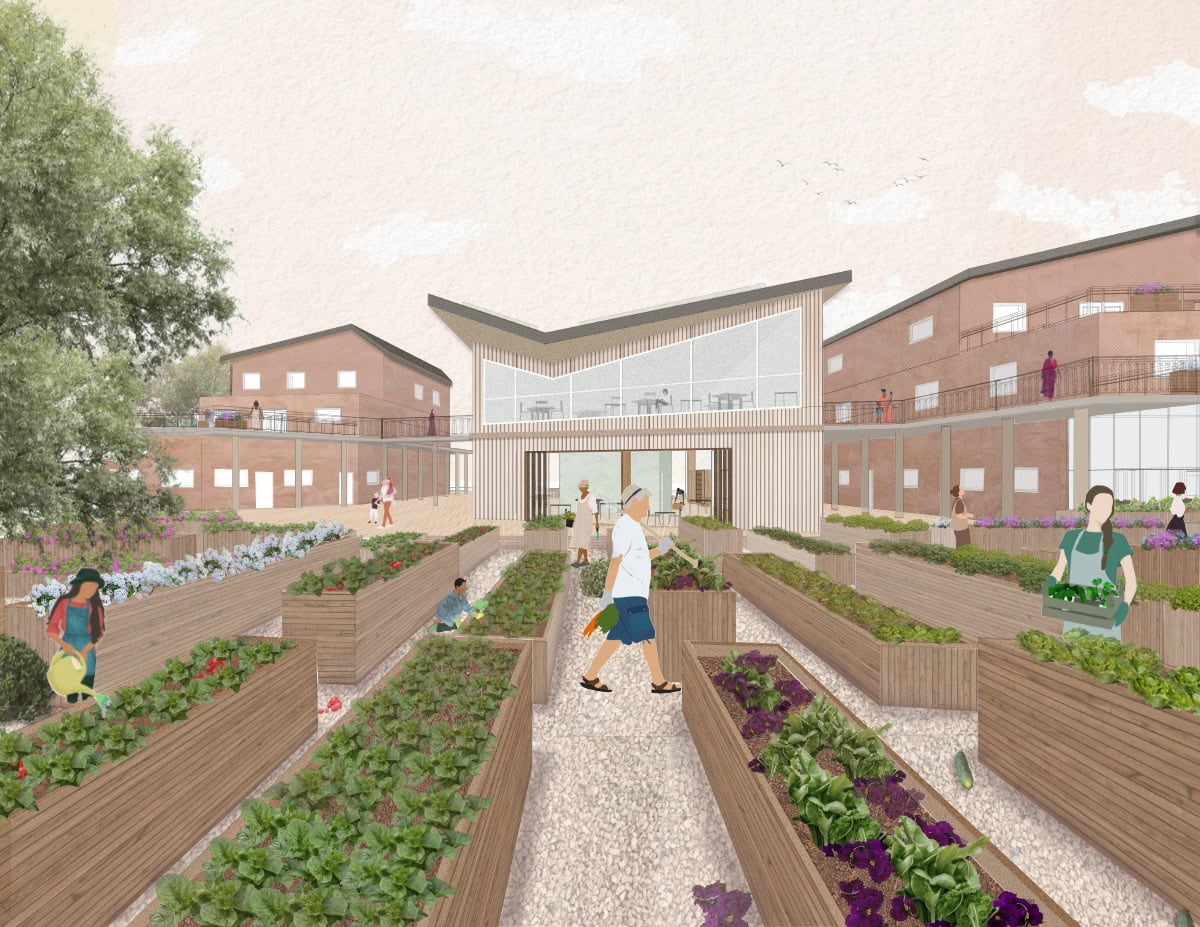

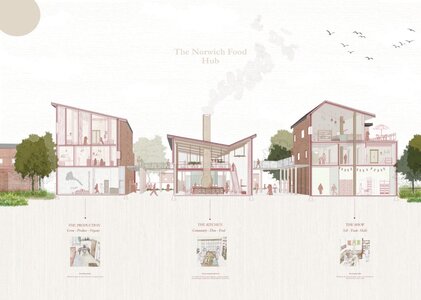
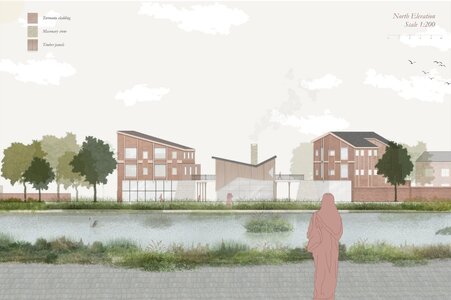
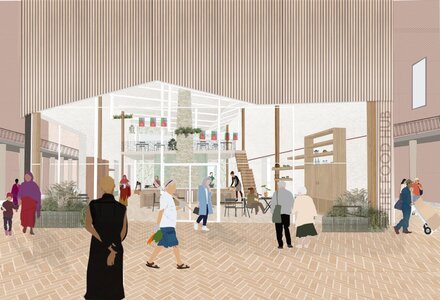
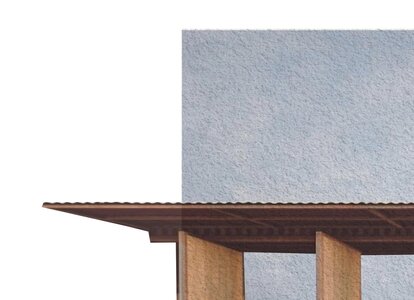

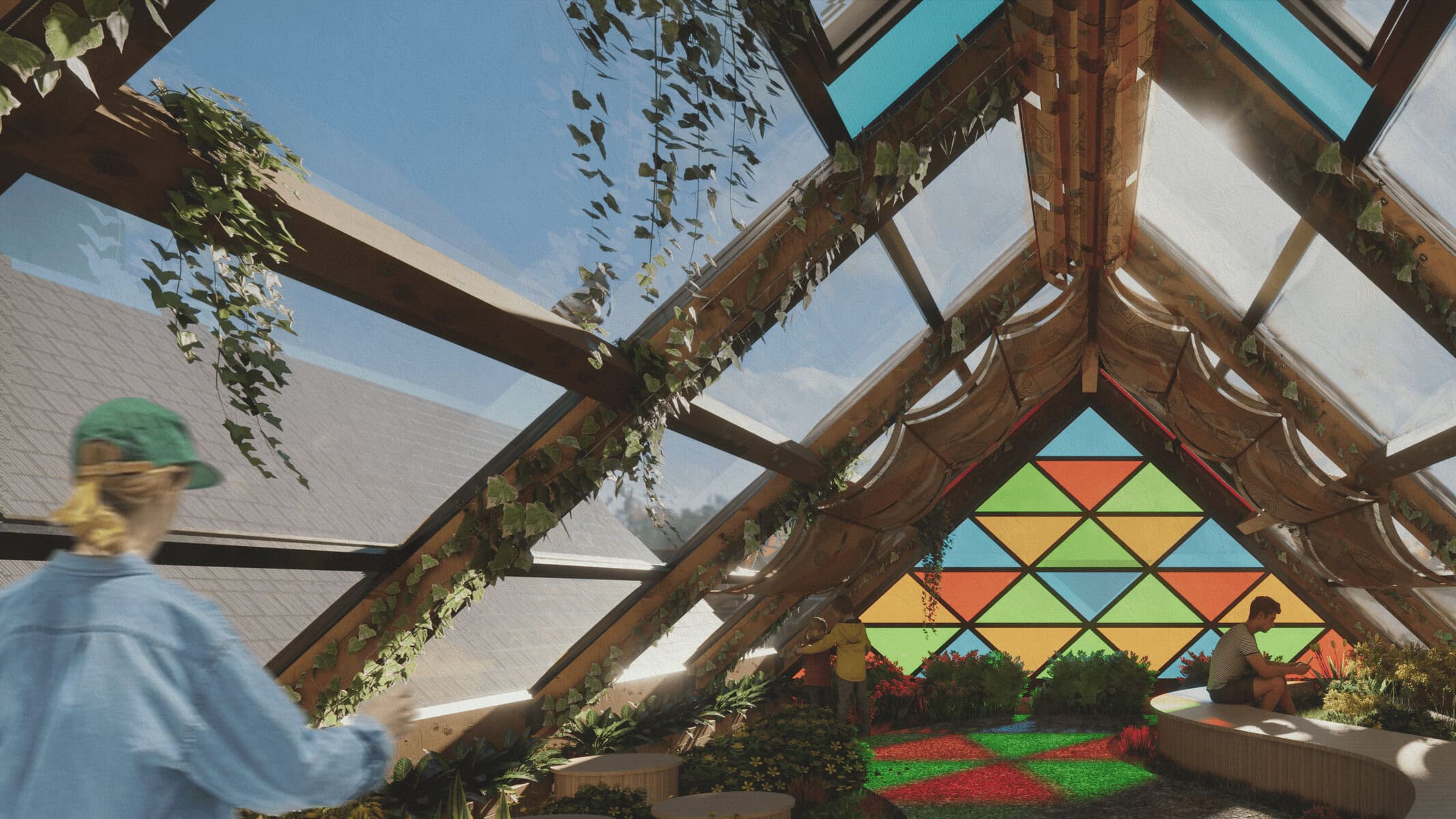


Add a comment